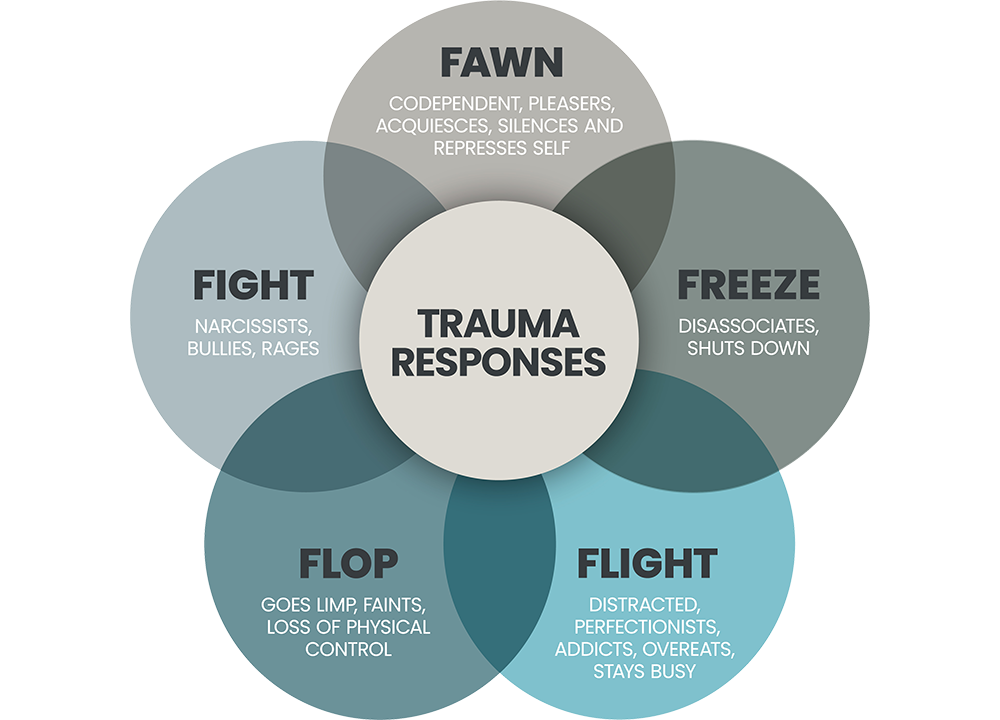
“Big T” and “Little T” Trauma: by Empower Counseling in Birmingham, Alabama
When most people think about trauma, they think about combat, war, physical or sexual abuse, and catastrophic events. They would be correct. These are all extremely traumatic experiences. These kind of events can be utterly debilitating. But there are many other events and occurrences that can be traumatic. Trauma is any intensely disturbing event that infringes upon someone’s sense of control. Trauma makes it difficult to continue living the way you lived before the trauma and function the way you did before the trauma. An accumulation of smaller events can be traumatic as well. These are called “little t” traumas.
What is considered traumatic depends on the individual. How a situation or occurrence impacts a person depends on predisposing factors, where the person is in life when the trauma or traumas are experienced. Some predisposing factors that will color a person’s experience are past experiences, level of distress tolerance, beliefs, perceptions, and morals.

“Big T” and “little t” trauma in young adults
There are many types of trauma that can have negative effects on young adults. The results of these traumas can look like PTSD, anxiety, depression, physical symptoms, and substance abuse. It does not matter if the trauma is labeled “big T” or “little t”. What matters is the response that you experience, and the way it affects your life and how you function. “Little t” traumas can cause significant distress and impaired function in young adults. For younger adults, experiences like a bad break up, losing a job, a beloved pet passing away, or being rejected by a friend group can trigger a trauma response.
Some symptoms of young adult trauma:
Feeling nervous and overwhelmed in everyday situations
Difficulty enjoying yourself
Trouble sleeping
Confusion, and lack of focus
Guilt and shame

“Big T” and “little t” Trauma can have serious mental, physical, and Emotional Impacts
An event does not have to threaten your own immediate safety for you to have a trauma response. Any event that causes distress, fear and helplessness can qualify as trauma. For an adult school teacher, seeing frequent shootings and death at schools can trigger a trauma response. This response can look different in different individuals. It can look like dread every morning upon waking on a school day. It can look like always being on high alert, in fight or flight mode.
Anyone watching the news on a regular basis could be experiencing fear and a sense of helplessness because of the mass shootings we are seeing daily. This is trauma.
childhood trauma
Traumatic events that occur in childhood are often called ACE’s, Adverse Child Experiences. One out of every 6 adults has experienced at least 4 ACE’s in their lifetime. These adverse childhood experiences can be particularly harmful because they occur in such a vulnerable stage of development. The effects of these traumas are likely to carry over into teens and adulthood. Another detrimental trauma often experienced in early childhood is relational trauma. This type of trauma happens when a child’s sense of safety and love is disrupted. This type of trauma can happen after just a few experiences when a child feels disregarded or unheard-if the child internalizes the event and makes the meaning that she is unimportant.
This kind of trauma may be the result of neglect or abandonment. A teen or adult may experience a trauma response that feels like severe anxiety in many situations and not even know that it is associated with the trauma they experienced in childhood.
Health Effects of “Big T” and “little t” Trauma:
Scientific research reveals that both “Big T” and “little t” traumas can lead to a wide array of mental health challenges. Childhood trauma often leads to anxiety and depression. Childhood trauma in the form of abuse often progresses to PTSD. There is a strong association between childhood trauma and substance abuse and eating disorders. The majority of individuals with anorexia, bulimia, and binge-eating report a history of trauma.

The Body’s Response to “Big T” and “little t” Trauma:
The brain and the body have a specific set of responses to trauma.
Flight: Your muscles tense in case you need to flee.
Fight: Your heart rate and respiratory rate increases, preparing you to confront danger.
Freeze: Your brain measures the threat level and your senses heighten.
Fright: Fear takes over causing helplessness and an inability to think clearly.
Faint: You body responds by fainting.
Flag: Your bodily systems begin to shut down, and you feel a numbing of emotions.
These responses are necessary and protective in the face of a true, immediate threat. However, after trauma, your nervous system may no longer distinguish between an actual threat to safety and an emotional threat. The nervous system is constantly on overdrive because your brain and body never found a way to process your trauma.
What Does not Work to Relieve Trauma ?
Minimizing. We have seen so many clients come into Empower Counseling for help who did not understand they had experienced real trauma. I often recognize that clients have been telling themselves that what they went through was not a big deal…that they should not feel the way they do. By minimizing trauma and belittling its effects on you, you do not allow yourself to properly process the trauma to halt the trauma response.

What works to relieve the symptoms of Trauma
Acceptance Commitment Therapy is a proven effective treatment for trauma. All of our knowledgeable and compassionate counselors are trained in ACT for trauma. Through ACT we will be with you to help you process your trauma so you can begin to live with it successfully. You do not have to suffer any longer. We can help you put the trauma behind you and focus on the life you want now and in the future.
ACT for trauma therapy and PTSD is not the only counseling treatment we offer. Online or in person at our Birmingham area counseling clinic, we offer anxiety therapy, counseling for depression and counseling for difficult life transitions. At Empower Counseling, we counsel teens, college students, young adults, and professionals. We are conveniently located between Highway 280 and Mountain Brook Village, serving clients from Homewood, Mountain Brook, Vestavia, Hoove, Trussville, and other surrounding areas in Birmingham.

It is easy to get started with Empower Counseling!
- Just click here and scroll to the bottom of our home page to send us a message or schedule a consultation.
- 2. Get to know your therapist.
- Start living the life you want to live.
